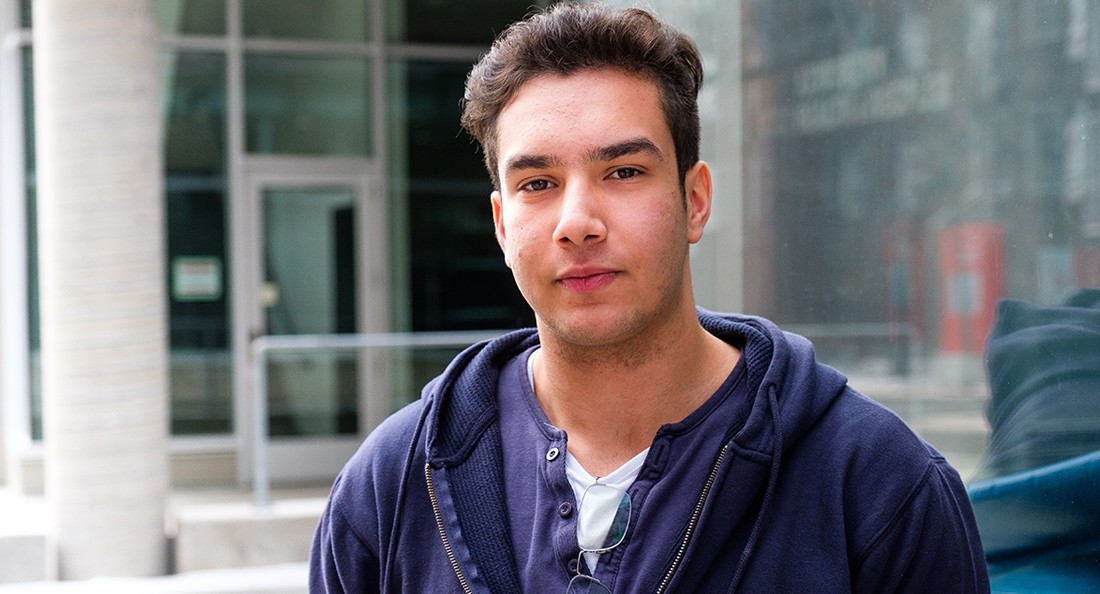International health-care plans at the University of Winnipeg
How foreign students and the U of W are coping without Manitoba Health
According to the Bureau of International Education, Canada’s global image as a tolerant and non-discriminatory country is what makes it a top destination among foreign students looking to make it their new home. But today, as international students face increasing obstacles and burdens for the duration of their study, Canada’s image is not looking as bright in the near future.
When Manitoba’s provincial government passed the Health Services Insurances Act that would repeal access to universal health care for international students in March 2018, universities scrambled to find alternatives to protect their share of students studying on visas. The change to the Health Services Insurances Act came into effect on Sept. 1, 2018 and was estimated to save the province $3.1 million. Now, more than a year since its implementation, various private insurance agencies have filled that gap across the province, but with a cost.
The clause under the Health Services Act that granted international students universal health care was first established in 2012 (by what was then the provincial NDP government) as an incentive for foreign students to consider studying in Manitoba and add to the growth of its economy. According to the Government of Manitoba, international students contribute upwards of $400 million to the economy through their tuition, labour and “diverse skills and talents.”
The International, Immigrant and Refugee Student Services (IIRSS) provides information to foreign and newcomer students at the University of Winnipeg (U of W) and lists three mandatory health plans based on a student’s duration and area of study.
International students studying on a permit for more than six months are registered under Manitoba Blue Cross and the University of Winnipeg Students’ Association Greenshield Coverage, while students studying in the English Language Program (ELP), Professional, Applied and Continuing Education (PACE) and University of Winnipeg Collegiate students or those who are studying for less than six months are enrolled under the guard.me plan.
Iresha Hewa Wellalage, co-ordinator of the IIRSS.
Iresha Hewa Wellalage, co-ordinator of the IIRSS, says international students who studied in Manitoba between 2012 and 2018 were “lucky” in that they were able to access free universal health care, as the students before and after them did not.
“Every single student had to pay for private international health care alongside the Greenshield Coverage (before 2012),” she says.
Hewa Wellalage also says “the university paid for the Manitoba Blue Cross portion for the first year after Manitoba Health was taken away, but now students have to pay for that.”
“This was not the university's fault. It is a provincial thing, so when the government decided to stop giving coverage to international students, the university was able to at least provide that coverage free of charge for the first year, which was great.”
Now that the U of W is no longer covering this insurance, students pay $849 per year for Manitoba Blue Cross, along with $296.28 for the UWSA Greenshield Coverage. Both plans are mandatory for international students, while domestic students can opt out of the UWSA Greenshield and are not automatically enrolled in the Blue Cross program.
“This is to ensure that foreign students are fully covered while in Canada, (because until students) have an emergency, they will not know how much it is going to cost them. Actually, while we were having our soccer tournament, a student got injured, and we had to take him to the hospital, and it cost him over a $1000. This was not for the treatment, just for the visit. But thankfully, he had the Blue Cross coverage. This made him understand the importance of having health coverage,” Hewa Wellalage says.
The IIRSS has not held any specific workshops for students regarding how to navigate the current health-care plan and system, but they did speak about it to students at orientation.
Hewa Wellalage says that if she were an international student, she would “love” to have this coverage despite the high cost, because she has seen students going through “so many medical issues and problems, especially in the cases of unexpected emergencies.”
Student Perspectives
The Canadian Federations of Students’ Manitoba chapter (CFSMB) currently runs the Fairness for International Students campaign, which includes advocating for universal health care for all and describes the repeal as “regressive” and “inhumane.”
On Sept. 4, 2019, CFSMB launched the Health Has No Borders initiative, which took place in the form of a rally in front of the Manitoba Legislative Building. The Facebook event for the rally demanded that “the government work with the regional health authorities to reduce the non-resident health care surcharge back down from 200 per cent to 75 per cent immediately and commit to reinstating funding for international student health care in the 2020-21 provincial budget.”
The campaign has yet to make a difference to the current legislation, and CFSMB’s chairperson, Brenden Gali, didn’t respond to the Uniter’s request for comment.
Gourav Kumar, an international student from India who has been in Canada since Aug. 17, 2019, is enrolled under the current mandatory health plan. He was not aware of the new legislation while making plans to study in Winnipeg nor CFSMB’s campaign to rally against it. Kumar thinks that the plan “is too much money for health care” and feels that people “don’t use much of their insurance.”
“I will use it for sure if I go through any medical conditions, but probably only one or two times. The whole $849 premium is not worth it,” Kumar says.
“A friend of mine (has lived) here (for) one-and-a-half years, and he has only used this insurance three times.”
“We already pay around $1,700 per subject, so it has turned out (to be) over $8,000 per semester (for a full course load), and then we are also paying an extra $800 for health insurance, and that just makes it too much,” he says.
“I’ll be glad if the federation succeeds.”
"I haven't used the insurance once. I didn't use it once last year, and I haven't used it once this year." - Erfan Hardanian
Erfan Hardanian, an international student from Iran who first studied at the University of Winnipeg Collegiate in 2018 before enrolling in a biochemistry undergraduate program at the U of W, has been registered with both the guard.me and Blue Cross plans.
Like many international students, Hardanian overworked himself through the summer to be able to afford international tuition fees, as his visa only permits him to work 20 hours per week during the school year, making the extra $849 for health care a big burden.
“I haven’t used the insurance once. I didn’t use it once last year, and I haven’t used it once this year,” he says. “I believe they can change it in a way that only students in need can use them, and they could cover international students with some sort of emergency insurance. That’s what I think would be better.”
“A big incentive for me to come here was because the (U of W) was cheap. So, at first, $800 for insurance wasn’t that big of a deal, because it was still cheaper than many other universities in Canada. But ultimately, students have chosen the (U of W) for its affordability, so adding premiums is not helping anyone.”
Hardanian will be here for another few years as a student and is “not optimistic” about the Progressive Conservative government. International students cannot vote in Canada, so their future on the matter of their tuition and health care is up to eligible voters to decide.
A National Issue
Manitoba is not alone when it comes to international students facing increasing burdens with changing governments. During the 2019 federal election, no party gave any specific positions on international tuition and health care. Further, situations like Doug Ford’s government in Ontario increasingly cutting off post-secondary funding and making universities more reliant on international students is a prime example of using international students to fill in the decreasing level of government subsidies.
Under the current Manitoba government, international students will now only be eligible for coverage under Manitoba Health once they apply and are accepted for their post-graduate work permit (PGWP), but this process could take months and leave students in limbo.
This is a situation where they neither have their Manitoba Health card nor coverage under private insurance through their educational institutions, due to the long processing times associated with receiving a PGWP.
Private insurance plans like guard.me and Blue Cross run a yearly course, and if a student is found waiting beyond the expiration of their insurance and their PGWP has not arrived yet, they will be left uncovered for that duration of time. This flaw in the system seems to only apply to health care, since international students on an “implied status” awaiting a new permit can still work even if their SIN has expired with their permit.
Moving Forward
Ultimately, the issues international students face throughout the province and Canada are complex and vary from student to student. I came to Canada as an international student in 2015 and was covered under Manitoba Health for every year of my undergraduate degree except my last.
Personally, as someone who has struggled with health issues, being covered was imperative to me, and it would be very beneficial to make health plans mandatory, especially in cases of emergencies and repatriation, the second of which is only available to students through private insurance plans. However, the root of the problem could be addressed with the fact that all these decisions made regarding international students are done without them at the table.
International students represent 9.5 per cent of the U of W’s student body and 12 per cent of Canada’s. They are able to vote in their student union elections and also ones that the Canadian Federation of Students holds, but they are unable to voice their concerns at provincial and federal ballot boxes. It is up to student organizations to both advocate for and represent international students and their interests. This has been successful in the past, such is the case of the 2012 Health Services Insurances Act.
“International students contribute a lot to the economy, and it’s about time we are recognized for that,” Hardanian says.
Published in Volume 74, Number 8 of The Uniter (October 31, 2019)








